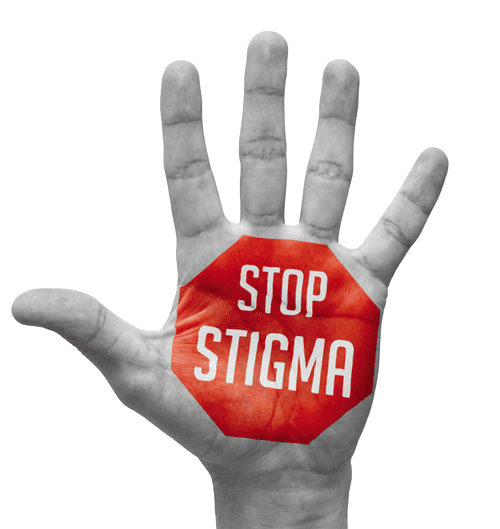Overcoming the Stigma of Addiction
Overcoming the Stigma of Addiction
 Stigmatization in our society is largely connected to the behaviors and concepts of our society, in part by the people that make up our community. Many of us who struggle with addiction of any sort find it is often difficult to seek treatment out of fear of judgment, shame, or guilt. There is an underlying fear of being given a stigmatized label. Without this fear, individuals might feel more accepted and open to being vulnerable and asking family, friends or professionals for the help they need.
Stigmatization in our society is largely connected to the behaviors and concepts of our society, in part by the people that make up our community. Many of us who struggle with addiction of any sort find it is often difficult to seek treatment out of fear of judgment, shame, or guilt. There is an underlying fear of being given a stigmatized label. Without this fear, individuals might feel more accepted and open to being vulnerable and asking family, friends or professionals for the help they need.
Where does this stigma of addiction come from? The stigma is produced in the media, movies, television, books, and ultimately created characters that fit a description of an otherwise made up criteria. The government continues to be active in creating solutions for the “war on drugs” but we also find that this perpetuates the concept that addiction is strongly related to criminal activity. As a result, those affected are scrutinized for this “idea” our community has about what addiction is, who it affects, and what it means to be addicted.
Despite the understanding across our nation that addiction is best comprehended as a very complicated blend of factors including biology, psychology and social triggers, we see that seeking help for addiction is often viewed as a weakness. The idea that those with addictive disorders are weak, deserving of their fate and less worthy of care is so inextricably tied to our zeitgeist that it’s impossible to separate addiction from shame and guilt. Ultimately, society may see those of us who struggle with addiction as characterized by a list of negative qualities, and it is for that same reason we find it hard to be open and honest when seeking to change negative behaviors.
Labels like “addict” or “alcoholic” continue to carry on in our community because the stigma of “who” an addict is has become overgeneralized. The concept of “once an addict- always an addict,” perpetuates the idea that we can never recover. When clients work to get to a stable place in their recovery, we begin to see that this stigma has implanted thoughts in those around us (family, friends or community) that speak to the belief that we are always one step away from relapse. If we could work to eliminate labels then we’d also be able to reduce the stigma.
The types of treatment available may also contribute to the ongoing stigma by using language that insinuates shaming or blaming. It is vital to the success of treatment to find appropriate language that doesn’t put one down for relapse or mistakes. Treatment requires a very deep level of vulnerability and emotional openness. Clients come into treatment doing the challenging work of re-wiring their understanding of self, and continuing to battle the messages of feeling like a failure or not measuring up to someone’s standard. In recovery, it is essential that we begin to use language that resets the foundation of hope and self-empowerment so we can begin to play an active role in recovery and make better choices each day. Providing clients, family members or friends in recovery the support of self empowering tools, encouragement, and hope, is essential to help pave the road of success time and time again.
Liked this article on Overcoming the Stigma of Addiction? You might also be interested in: The Keys to Self Regulation.
